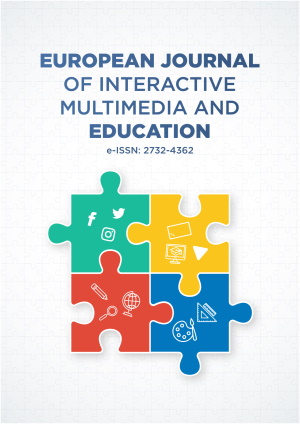Volume 2, Issue 1, January 2021
Research Article
Perception and Attitude of Employers toward Distance Learning Graduates in Labour Market: A Case Study of Niger State, Nigeria
EUR J INTERACT MULTIMED ED, Volume 2, Issue 1, January 2021, Article No: e02101
https://doi.org/10.30935/ejimed/9348Research Article
Teachers’ Perception, Experiences, and Challenges about Teens of Ages 12-14 Years who have Reported Online Digital Insecurity in Kenya
EUR J INTERACT MULTIMED ED, Volume 2, Issue 1, January 2021, Article No: e02102
https://doi.org/10.30935/ejimed/9360Research Article
E-Learning Platform: A Sustainable Approach for Students’ Learning during and after Coronavirus Pandemic in Oyo State Secondary Schools, Oyo State, Nigeria
EUR J INTERACT MULTIMED ED, Volume 2, Issue 1, January 2021, Article No: e02103
https://doi.org/10.30935/ejimed/9361Research Article
Facing COVID-19 through Emergency Online Education Anchored in Khan’s Framework: Case of Philippine Teachers in Xi’an, China
EUR J INTERACT MULTIMED ED, Volume 2, Issue 1, January 2021, Article No: e02104
https://doi.org/10.30935/ejimed/9683Research Article
Teachers’ Perspectives on Remote-based Teaching and Learning in the COVID-19 Era: Rethinking Technology Availability and Suitability in Zimbabwe
EUR J INTERACT MULTIMED ED, Volume 2, Issue 1, January 2021, Article No: e02105
https://doi.org/10.30935/ejimed/9684Research Article
Rethinking Communication and Crowdsourced Technology: Mediating Role of Mobile-Learning Tie to Broadband
EUR J INTERACT MULTIMED ED, Volume 2, Issue 1, January 2021, Article No: e02106
https://doi.org/10.30935/ejimed/9703Research Article
ICT Competency of Mathematics Teachers at Secondary Schools of Nepal
EUR J INTERACT MULTIMED ED, Volume 2, Issue 1, January 2021, Article No: e02107
https://doi.org/10.30935/ejimed/10847
